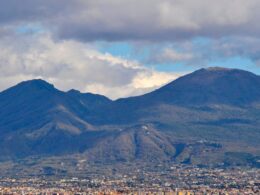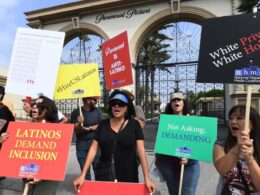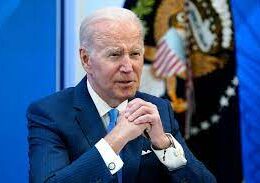On the anniversary of Tiananmen Square Hong Kong police detained 23 individuals. Hong Kong police detained several pro-democracy activists on the anniversary of the Tiananmen Square tragedy.
China’s tanks and troops crushed nonviolent protesters in Beijing in 1989, and authorities have since outlawed any public commemoration of the event.
There have been candlelight vigils in other cities throughout the world, though.
Alexandra Wong, 67, was a prominent activist known as “Grandma Wong” among those jailed.
She brought flowers near Victoria Park, where vigils had been conducted for decades, when she was apprehended on a tense evening in Hong Kong.
Read more: William told Kate to chop-chop at Jordan’s royal wedding.
One of the principal opposition party leaders in Hong Kong was detained. Chan Po Ying, leader of the League of Social Democrats and a longtime pro-democracy campaigner, carried an LED candle and two flowers.
Former Hong Kong Journalists Association head Mak Yin Ting was jailed and later freed. The police later reported that one person had been arrested, and 23 others had been hauled in for questioning.
The United Nations High Commissioner for Human Rights, Volker Turk, expressed worry at the detentions and demanded the release of “anyone detained for exercising freedom of expression and peaceful assembly” in a tweet.
In mainland China, commemorative events are forbidden in light of the 1989 Beijing Massacre.
Hong Kong’s semi-autonomous economic, political, and legal setup – known as “one country, two systems” – formed when the city was handed over to China from the UK in 1997. It made it the only Chinese city where these commemorations were allowed for decades.
Public commemorations of the occasion are now illegal because of a draconian national security regulation that will go into effect in China in 2020, making many kinds of protest illegal.
Since 2019, when they were first outlawed under Hong Kong’s Covid legislation, the yearly commemorations have yet to take place.
Instead of the usual carnival at Victoria Park, a pro-Beijing event is being staged this year.
On Sunday, in the Causeway Bay neighborhood, Ms. Wong was swiftly encircled by police and driven away.
Since 1990, thousands of people have gathered for candlelight vigils in nearby Victoria Park to remember the events of June 4 or June 4th in most of China. Thousands of Hong Kong Police have been stationed at strategic locations throughout the city to conduct random searches and interview citizens.
Officers and journalists were randomly searched at booths outside the Victoria Park metro station.
In what looks to be a show of force, police have also stationed two Chinese-made “Sabre-tooth Tiger” armored vehicles in the region.
The local government has also removed books about the Tiananmen crackdown from public libraries in preparation for the expected protests.
A woman who yelled, “Raise candles!” was detained. A man carrying a book titled “May 35th” and a sign reading “Mourn 64!” alluding to the date of the murders on June 4th.
Others have been arrested for wearing yellow, representing the now-defunct pro-democracy movement, or holding unlit candles.
On Saturday, four people were arrested for new offenses under the controversial 2020 law, including disturbing order in a public place and acting with seditious intent. Sunday has seen dozens of candlelight vigils held in memoriam of the victims of the Chinese military’s crackdown.
Hundreds of people gathered to celebrate the occasion in Taiwan, the democratic, self-governing island China claims as its own and has pledged to seize control of by force if necessary.
Taipei’s “Pillar of Shame” was erected as a tribute to the victims of the Tiananmen Square massacre and was met with chants of “fight for freedom, stand with Hong Kong” by the city’s residents.
Many participants also hope that the vigils will keep alive the spirit of Hong Kong’s once-active civil society and political community, which has since mostly gone silent due to the enormous number of people imprisoned for violating the national security law or who have left the city.
Protests for broader political liberties erupted nationwide in 1989, with their epicenter in Beijing’s Tiananmen Square.
Students made up the bulk of the thousands who camped in the famous Beijing square for weeks before the military stepped in and opened fire on 4 June.
When the film of a single protester stopping a column of tanks went viral, he or she quickly became a global symbol of dissent.
According to the Chinese authorities, several dozen security officers and 200 people were killed. There have been a variety of other estimates ranging from the hundreds to the thousands.
Activists believe the government’s actions are part of China’s larger plan to silence political opposition in Hong Kong.









